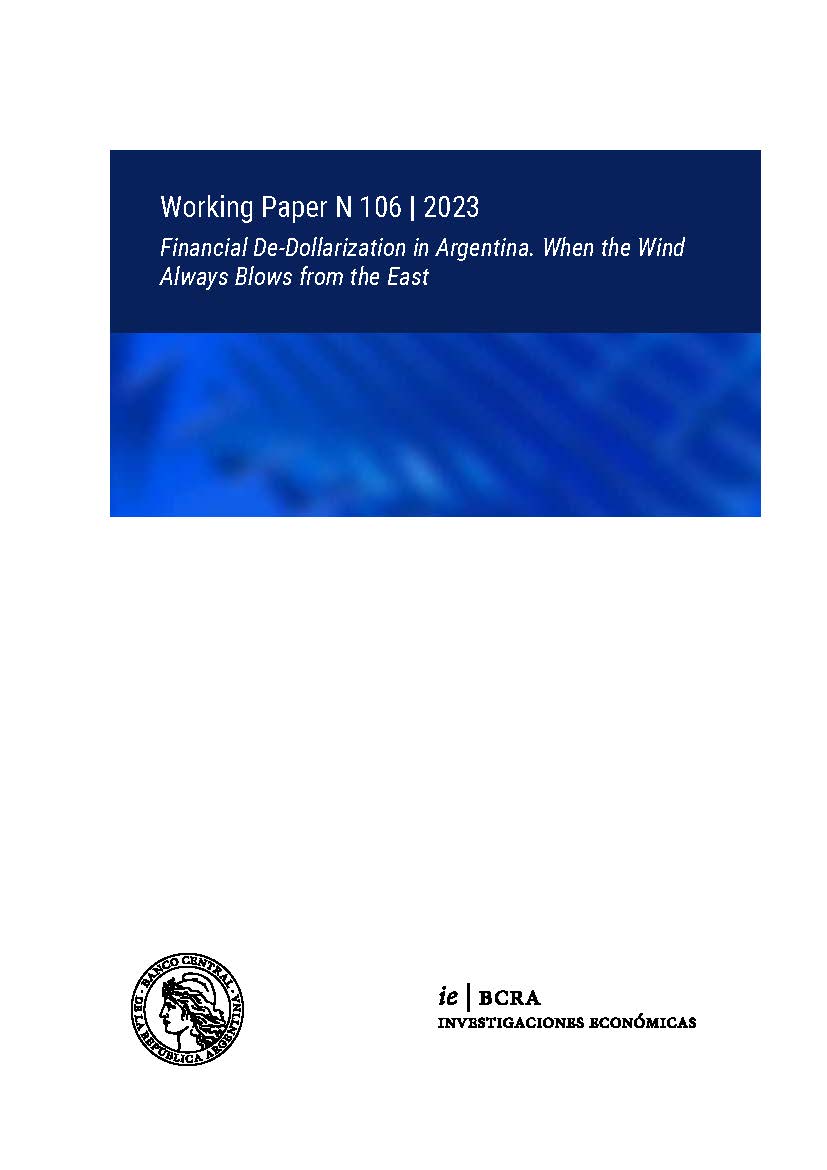Financial De-Dollarization in Argentina. When the Wind Always Blows from the East
Working papers | 2023 | N 106
Keywords:
Dollarization, Asset substitution, Financial intermediationAbstract
Dollarization hinders financial intermediation in domestic currency which is detrimental for economic growth and development. A broad branch of the financial dollarization literature is based on portfolio theory. Dollarization of savings portfolios is the result of optimal mean-variance portfolio selection. In this document, we use an optimal portfolio selection approach to analyse financial dollarization’s hysteresis in Argentina. Based on the historical experience of our country, we model agents’ expectations using second-order probability distributions, that allow us to incorporate positive bias in subjective distribution of dollar returns. This bias arises from the subjective perceptions of unsustainability of the current regime. Under the proposed analytical scheme, in contexts in which households and firms face difficulties in identifying informative signals about the sustainability of the current exchange-rate regime, policy measures aimed at promoting financial de-dollarization may produce unwanted behavior. For example, the usually stated mean-variance approach argument of rising real exchange rate volatility relative to domestic currency volatility (inflation) could be perceived as an increase in the subjective probability of regime change, leading to portfolio rebalancing towards the foreign currency, with opposite results to those expected.
JEL classification: E52 ; F36 ; F41 ; G11


